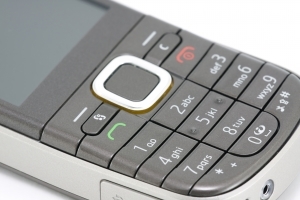 On February 27, 2014, the United States District Court for the Western District of Washington ruled that a plaintiff who provided his mobile telephone number in connection with registering for a local car-sharing service gave “prior express consent” (within the meaning of the Telephone Consumer Protection Act (“TCPA”)) to be contacted via text message by defendant, car2go N.A., LLC (“car2go”).
On February 27, 2014, the United States District Court for the Western District of Washington ruled that a plaintiff who provided his mobile telephone number in connection with registering for a local car-sharing service gave “prior express consent” (within the meaning of the Telephone Consumer Protection Act (“TCPA”)) to be contacted via text message by defendant, car2go N.A., LLC (“car2go”).
As part of the car2go registration process, plaintiff was required to complete a form and submit, among other things, his mobile telephone number. Plaintiff was also required to affirmatively check three boxes confirming that he had reviewed and accepted the car2go “Terms and Conditions,” “Trip Process” document and “Privacy Policy.”
Apparently buried in the seven page “Trip Process” document was an explanation that car2go would validate the personal information provided by the applicant, approve an application before membership was extended, and “may confirm a registration via instant text message.” (According to the Court, the text message language appeared in the car reservation section of the Trip Process document – not in the application registration section.) The car2go Privacy Policy further disclosed that the company would use plaintiff’s personal information in any “business process,” including in periodic membership validation.
Within seconds of electronically submitting the completed registration form, plaintiff received a text message to his mobile telephone that provided an activation code that plaintiff could use to electronically complete his registration. In response to receiving this text message, plaintiff commenced litigation against car2go, alleging violations of the TCPA and Washington law.
The Common Sense Approach to the TCPA’s “Prior Express Consent”
Unlike a recent California federal court decision that had analyzed the TCPA’s “prior express consent” standard, the Washington District Court relied heavily on the Ninth Circuit’s decision in Satterfield v. Simon & Schuster, Inc., which held that “[e]xpress consent is ‘[c]onsent that is clearly and unmistakably stated.’” The Washington Court reasoned that although plaintiff did not explicitly grant permission to car2go to contact him by text message regarding his registration form, no reasonable person in his shoes could have doubted that car2go would contact him in some manner. In analyzing the particular facts of the case, the Court held that regardless of whether car2go chose a text message (in addition to an email) is “not significant,” because plaintiff “clearly and unmistakably consented to being contacted about his registration.”
The Court admittedly took a “common sense” approach to the facts before it, opining that, for example, “[c]ould a person who provided a telephone number to a mechanic claim that she did not consent to be called (or texted) when her car was repaired?”
According to the Court’s analysis, as the documents governing the parties’ relationship confirmed (and which plaintiff accepted by checking three separate boxes on the registration page), the subject text message validated plaintiff’s personal information (i.e., his mobile telephone number), confirmed car2go’s acceptance of plaintiff’s application and, essentially, was a form of membership validation.
The Court’s TCPA Ruling and the FCC’s New Rules
We have repeatedly warned that the new changes to the TCPA regulations went into effect on October 16, 2013. (See New TCPA Rules Effective October 16, 2013). The new rules mandate that “unambiguous written consent” be provided by consumers before any telemarketing call may be placed or any text message may be sent. Please note that the Western District of Washington’s ruling does not change these requirements (because the text message at issue was sent prior to October 16, 2013).
Arguably, the Washington Court’s decision might not be different even under the TCPA’s new stricter requirements because of the “common sense” approach taken by the Court. However, the Court’s cited examples, including the mechanic example referenced above, may have fallen within the established business relationship exemption to the TCPA (which no longer exists under the new TCPA rules) or another exemption for calls made/texts sent for informational purposes only (which still only requires “prior express consent”).
We again reiterate how important it is that businesses understand the various provisions of the TCPA in order to protect against a TCPA action.
If you are interested in learning more about this topic, or if you have been named in a lawsuit relating to the TCPA, please e-mail us at info@kleinmoynihan.com or call us at (212) 246-0900.
The material contained herein is provided for informational purposes only and is not legal advice, nor is it a substitute for obtaining legal advice from an attorney. Each situation is unique, and you should not act or rely on any information contained herein without seeking the advice of an experienced attorney.
Attorney Advertising



